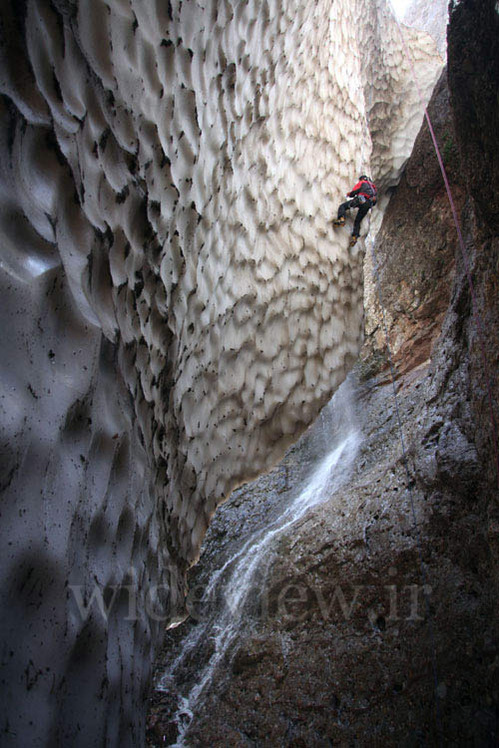Photo: 'Alborz' by Hamid Mohammadnazar

Alborz
| Average rating: 5.0 | (use stars to vote) |
Alborz (About this sound listen (help·info) Persian: البرز), also written as Alburz, Elburz or Elborz, is a mountain range in northern Iran stretching from the borders of Azerbaijan and Armenia in the northwest to the southern end of the Caspian Sea, and ending in the east at the borders of Turkmenistan and Afghanistan. The highest mountain in West Asia, Mount Damavand, Amol, Mazandaran is located in the range. The Alborz mountain range forms a barrier between the south Caspian and the Qazvin-Tehran plateau. It is only 60–130 km wide and consists of sedimentary series dating from Upper Devonian to Oligocene, prevalently Jurassic limestone over a granite core. Its higher elevations, in the Elburz Range forest steppe ecoregion, are arid with few trees, but its northern slopes, in the Caspian Hyrcanian mixed forests ecoregion, are lush and forested. Zoroastrians may identify the range with the dwelling place of the Peshyotan, and the Zoroastrian Ilm-e-Kshnoom sect identify Mount Davamand as the home of the Saheb-e-Dilan ('Masters of the Heart'). In his epic Shahnameh, the poet Ferdowsi speaks of the mountains "as though they lay in India."[1] This could reflect older usage, for numerous high peaks were given the name and some even reflect it to this day, for example, Mount Elbrus in the Caucasus Mountains, and Mount Elbariz (Albariz, Jebal Barez) in the Kirman area above the Straits of Hormuz. As recently as the 19th century, a peak in the northernmost range in the Hindu Kush system, just south of Balkh, was recorded as Mount Elburz in British army maps. All these names reflect the same Iranian language compound, and share an identification as the legendary mountain Harā Bərəzaitī of the Avesta. Also due to its great snowy winters there are several ski resorts, some consider that a few of these are among the best in the world[who?]. Some of most important ones are Dizin, Shemshak, Tochal, and Darband.

 Like us
Like us Follow us
Follow us Follow us
Follow us